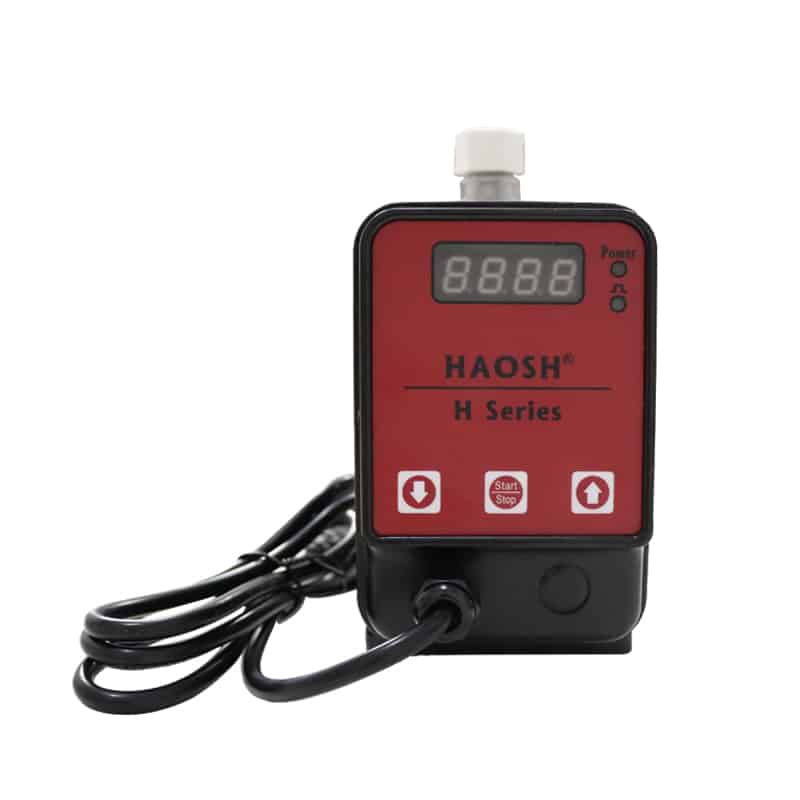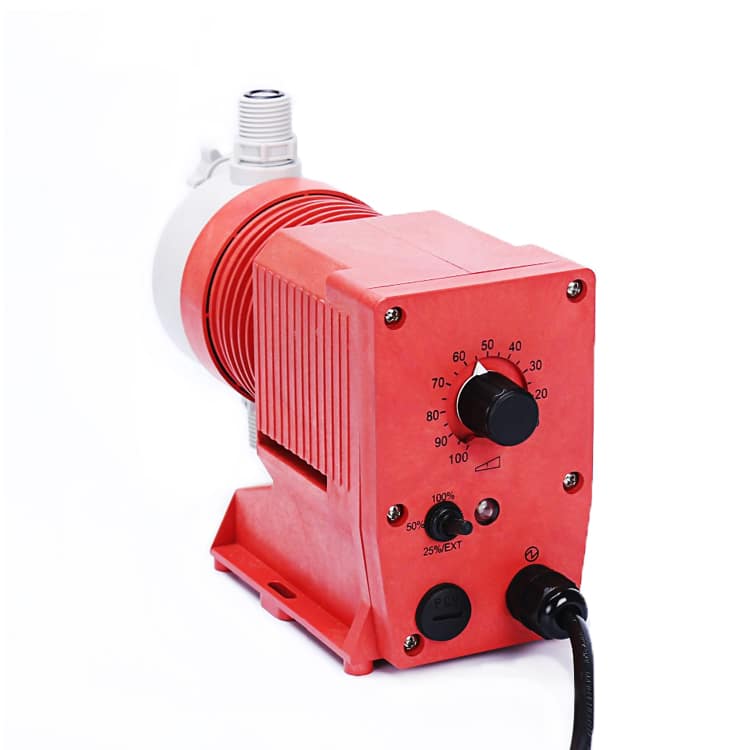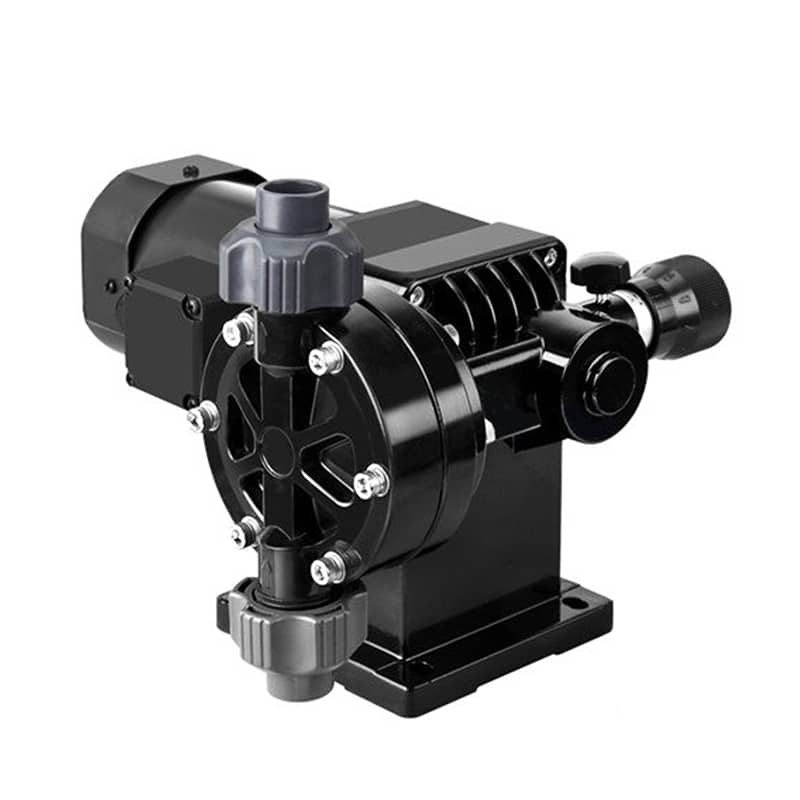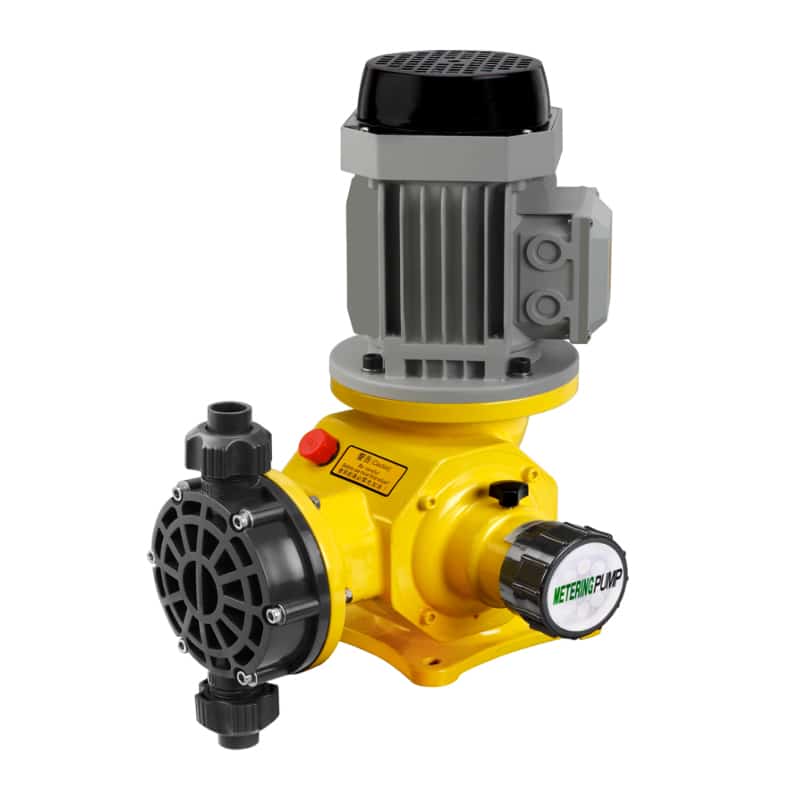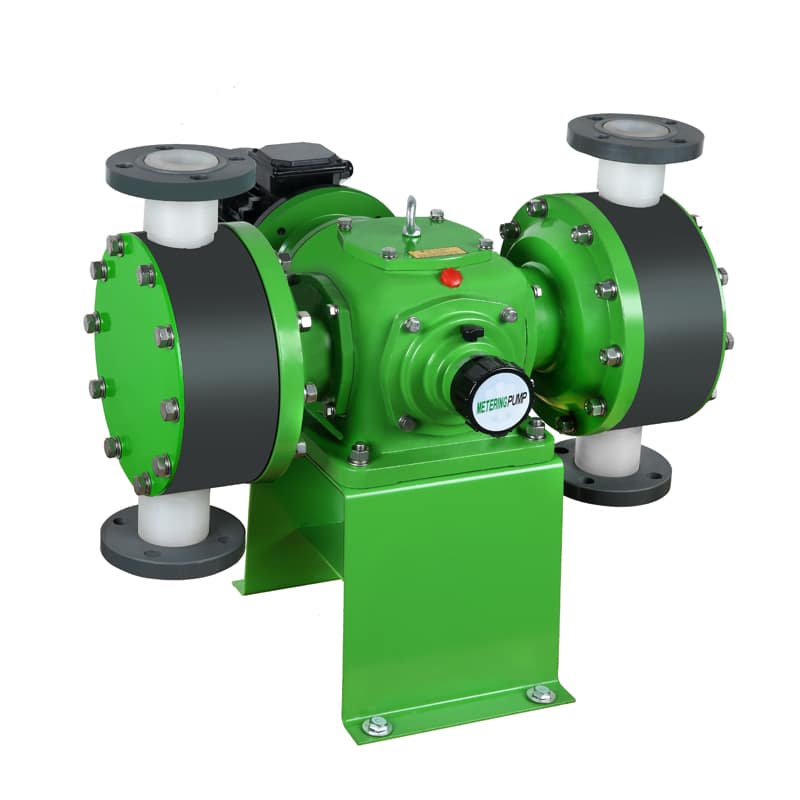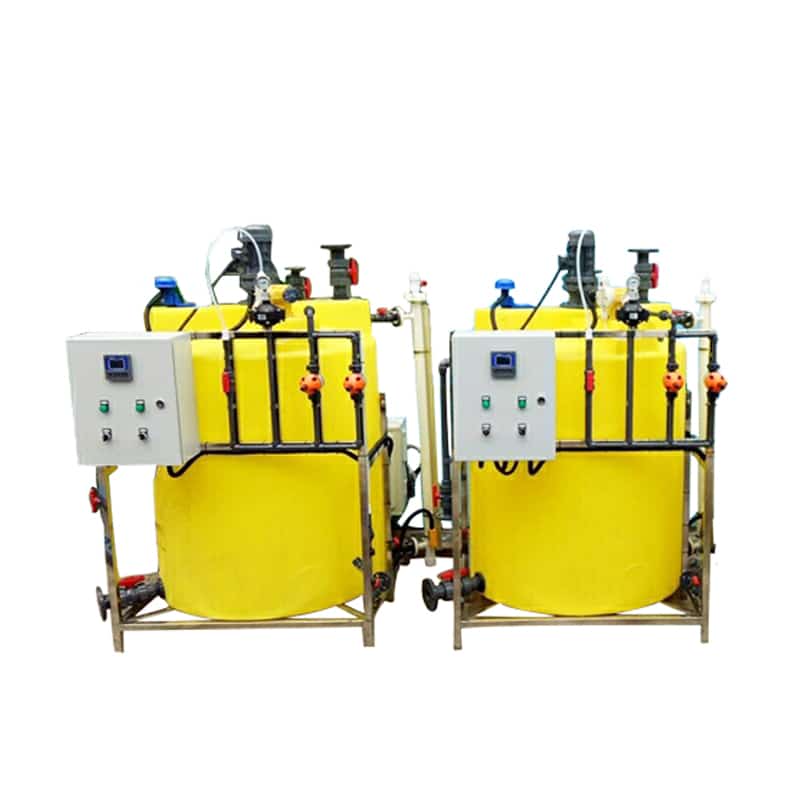RO Plant Dosing Pump

RO plant dosing pumps are pumps used to add chemicals to reverse osmosis water treatment systems. These chemicals, which may include scale inhibitors, disinfectants, pH adjusters, etc., are used to optimize the performance of the reverse osmosis system, protect the integrity of the membranes, and extend the life of the equipment. Dosing pumps typically add chemicals to water at a predetermined rate and flow rate based on the needs of the water treatment process. This helps ensure the stable operation of the water treatment system and provides high-quality treated water.
Working Principle
Dosing pumps precisely control the amount of chemical dosage by adjusting the pump’s operating speed or the piston’s activity. The dosing pump automatically adjusts the amount of chemical dosage based on pre-set parameters such as flow rate, pressure, or time. These parameters can be adjusted based on water quality monitoring data or operator input to ensure that the chemical dosage in the water treatment system is always within the proper range.
Dosing pumps usually consist of a drive mechanism, piston or diaphragm, inlet piping, outlet piping, and a controller. The drive mechanism is powered by an electric motor or pneumatic device to drive the movement of the piston or diaphragm, thus realizing the precise dosing of chemicals. The controller can automatically adjust the running speed of the pump according to the system requirements or be set manually by the operator.
Advantages
- Precise control: The amount of chemical dosed can be precisely controlled to ensure that the required chemical balance and water quality parameters are maintained during the water treatment process.
- Automated Operation: Metering pumps are typically integrated with the dosing control system of a reverse osmosis system, allowing for automated operation and remote monitoring.
- Stability and Consistency: By dosing chemicals stably and consistently, metering pumps ensure stable operation and consistent water quality in reverse osmosis systems.
- Adjustability: Dosing pumps typically have adjustable dosing rates and operating parameters that can be adjusted and optimized according to actual needs.
Disadvantages
- Higher initial cost
- Maintenance and upkeep
- Risk of failure
RO plant dosing pumps play an important role in the water treatment process. Precise regulation and control of water quality can be achieved by precisely controlling the amount of chemical injection dosing to improve system performance and stability. However, attention needs to be paid to its cost and maintenance requirements to ensure reliable system operation and long-term benefits.

